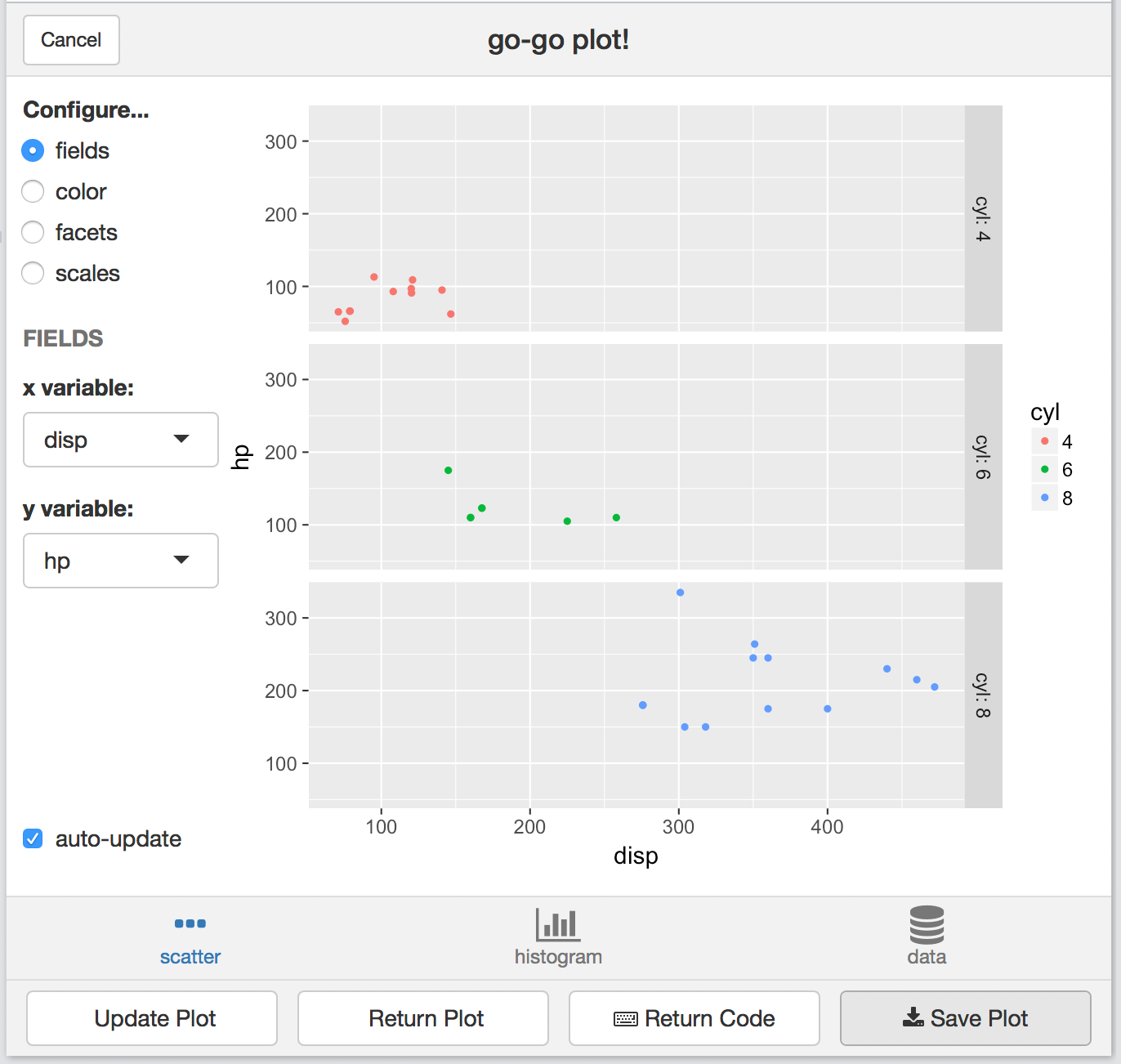gogoplot provides a simple GUI for building a ggplot data visualization (using a shiny HTML gadget). A data viz GUI is not a new thing. But the feature that gogoplot strives to achieve is the ability to return either the final plot or the code used to make that plot. This makes gogoplot an educational tool and a way to make your visualizations reproducible.
This package is a work in progress. I would love help improving it! Check out the "Contribute" section if you're interested.
gogoplot is only currently only available on github, as a development version. You can install this with the code below, using the devtools package.
# install.packages("devtools")
devtools::install_github("wcmbishop/gogoplot", force = TRUE)The current version of gogoplot has just one function - plot_gadget(). When you pass in a data-frame, a gadget UI will appear (either in your RStudio Viewer pane or in a pop-up window). From there, you can get to plotting! At the end, return the plot you made or the code needed to make it yourself.
library(gogoplot)
plot_gadget(mtcars)This is the very beginning of this package, and I would love help and feedback in developing it. The core concept is to provide simple GUIs for common R activities, which can then return the generated code as a result. As mentioned above, this seems useful both as a learning tool and a way to generate reproducible code. I'd ideally like to build these GoGo gadgets for some of the most valuable and frequently used tidyverse tools/workflows below. I'm starting with ggplot2 because it's what got me into R.
The core piece to making these gadgets robust and scalable is to implement the programmatic code generation well. This has recently been improved to capture both plot updates and plot code in one step, with a new %++% operator. This function adds a plot layer and captures the code in an object attribute (as a character vector). This relies heavily on the amazing rlang package and quasiquotation under the hood.
If you would like to help, please post a new github issue or send me a pull-request.
